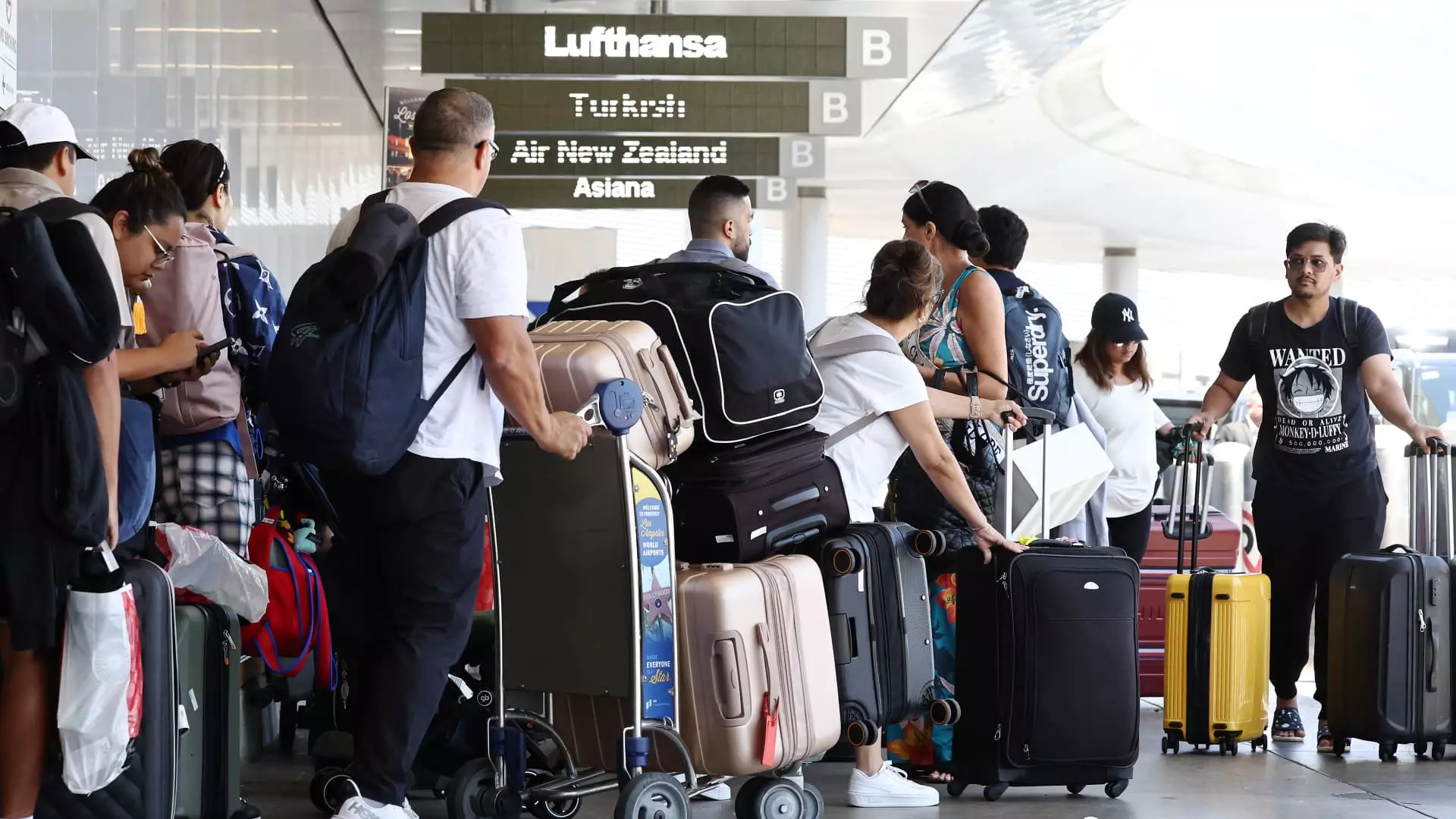The summer air travel season in the United States is expected to reach record numbers as the Transportation Security Administration recently screened over 2.99 million individuals in a single day. Forecasts suggest that over three million flyers will be screened on the Friday leading into the Independence Day week. This surge in travel is expected to result in more than 32 million travelers screened between June 28 and July 8, representing a 5.4% increase compared to the previous year.
Airline Challenges Amidst Growing Demands
Despite the record-breaking numbers, airlines are facing a myriad of challenges that could impact the travel experience. From supply chain delays to Boeing safety crises limiting new planes in the market, the industry is facing intense regulation, air traffic controller shortages, and rising costs that are affecting bottom lines and margins. Throughout last summer’s peak season, airports struggled to keep up with delays and cancellations, indicating that there are still many hurdles to overcome in the upcoming weeks.
Extreme weather conditions, such as the recent heatwave across the U.S., can lead to technical failures and flight delays. High temperatures cause thin air, reducing thrust during takeoff and ascent, causing planes to require more runway or lighter loads. Additionally, the Federal Aviation Administration has cited a shortage of up to 3,000 air traffic controllers, which could exacerbate coordination issues leading to delays and cancellations.
Improved Coordination and Preparedness
While challenges persist, airlines are making efforts to improve coordination and preparedness for the busy travel season. Some airlines, like United and American Airlines, have increased staff and planned for more departures to accommodate the growing demand. Coordination between the federal government, local air traffic control towers, and the military has also improved to mitigate potential delays and issues.
Travel experts recommend that travelers prepare and secure backup plans to navigate the uncertainties of summer travel. Signing up for airline apps, such as TSA PreCheck, Clear, and Mobile Passport Control, can offer faster security screenings and expedited customs clearance. Flight tracking apps can help passengers stay informed of any changes in flight status, allowing them to adjust their plans accordingly.
Factors Affecting Air Travel Prices
While airfares have decreased in some cases, various factors can influence the final cost of travel, including destination, booking timing, and additional fees. With supply chain issues affecting the production of new planes, airlines may face future price hikes due to maintenance costs and reduced fleet capacity. Rising labor and fuel costs are already impacting the industry, potentially leading to higher fares in the future.
Despite the challenges facing the summer air travel industry in the United States, travelers can still take advantage of last-minute deals and lower prices on certain routes. By staying informed, preparing for potential disruptions, and utilizing available resources, passengers can navigate the busy travel season with relative ease. While delays and cancellations may occur, with proper planning and flexibility, travelers can make the most of their summer travels.

